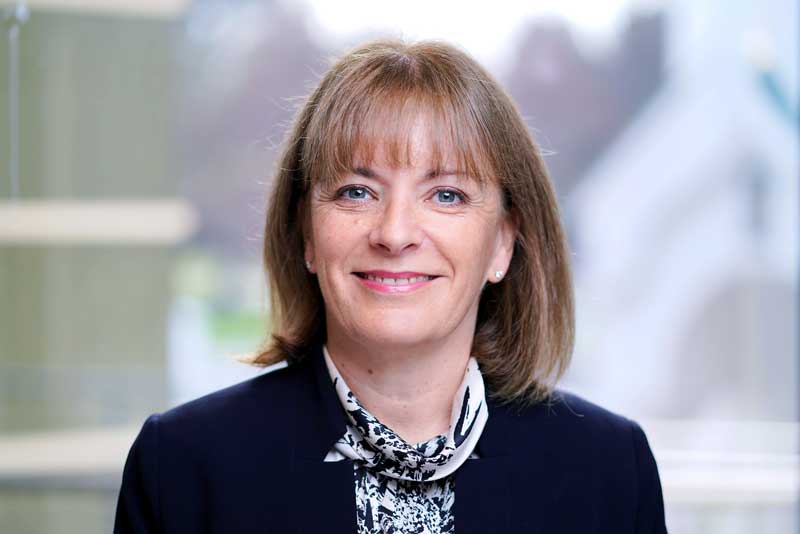It’s time to ‘name and shame’ companies with no women in senior roles

Rather than imposing gender diversity targets on companies, the head of small cap healthcare software maker Alcidion (ASX:ALC) believes more will be achieved by outing those who don’t do anything to bring in more women.
“I’m not necessarily a big believer in quotas for management or boards on the ASX, but I’m a big believer in calling out those that don’t have gender balance and identifying them,” Alcidion group managing director Kate Quirke told Stockhead.
“The Australian Company Institute of Directors is doing a lot of work about trying to promote this and … in the US one of the huge superannuation funds basically won’t invest in companies that don’t at least have one woman on their board.
“That’s not maybe a massive quota but it has really caused a big shift in the number. In the course of 12 or 18 months, they’ve increased by 40 per cent the representation of women on boards just by doing that.
“So rather than making it another governance thing that they have to achieve in terms of an ASX-listed company, I think it is better to actually name them and shame them and ask them why: what is the justification for having no female representation or diversity on your board?”
The Australian Institute of Company Directors (AICD) launched its “30 per cent Club” in May 2015 which had a target of 30 per cent women on ASX 200 boards by the end of 2018.
As of the end of February, 29.7 per cent of ASX 200 boards were women. The AICD has set a new target of 30 per cent women directors on the boards of ASX 300 companies by the end of 2021.
Alcidion employs more than 80 staff, of which about 40 per cent are women.
Quirke was appointed as CEO and an executive director on the Alcidion board in July last year. Two of her six direct general manager reports are women.

Healthcare more attractive than IT
But Alcidion may be a bit of an outlier in respect to how many women it employs because while it is an IT company. Quirke believes its focus on the healthcare sector is a bit of a drawcard for women.
“We operate slightly slanted towards more men than women but being a healthcare-oriented IT organisation and a company that attracts people from the healthcare industry as well as IT, there’s more representation of females in healthcare than perhaps other industries,” Quirke explained.
The broader IT sector, however, is still a bit of a boy’s club.
“Because most of the IT I deal with are also other healthcare IT companies, I have a bit of skewed view about that because there are more women in it than you would see in your standard IT company,” Quirke said.
“So if I look at an IT company that is not healthcare, it will be predominantly male and I do think it comes down to probably some of the similar things that impact the finance industry about not making the environment that friendly or attractive to women.”
But is doing better than the finance and banking sectors, according to Quirke.
“Having only recently become the CEO of an ASX-listed company I have been shocked right back into the world of dealing with the financial brokers and capital markets to find that there is very little representation of women on that side of it,” she said.
“I could go through a whole week of meetings with financial-oriented people and for my investor relations and not see a woman.”
In terms of IT, it seems the work environment is not as conducive for women.
“When we get down to our more technically-oriented roles, they are filled by more males than women and I do often ask myself why women are not attracted to the coding/developer side as much as men are,” Quirke said.
“I only have to look out the office at all of the men with their headphones on tapping away at computers and they’re quite happy to work in that environment, and I think females generally like to have an environment where they also are collaborative and can share and problem solve together.”
- Subscribe to our daily newsletter
- Join our small cap Facebook group
- Follow us on Facebook or Twitter
Quirke is working with her team to attract more women to technically-oriented roles as well as healthcare business related roles.
Alcidion offers pay parity for women as well a flexible working environment.
“I’m a really big believer in flexibility in the workplace and I believe in that for all of our workers regardless of male or female,” Quirke explained.
“I am a really big believer in breaking down the stereotypes that judges a person’s capability or contribution based on how many hours they sit at their desk.
“I myself have two young children and I manage to go to their swimming carnivals and attend the things that are important from our family’s perspective, but at the same time I can run an ASX-listed company.
“Now that might mean I’m not at my desk from 8 in the morning until 6 at night, but I’m certainly still achieving what is required by the role.
“We now have so much technology to support us in the way we do our work, so we should not be judgemental on how other people achieve their outcomes.”
UNLOCK INSIGHTS
Discover the untold stories of emerging ASX stocks.
Daily news and expert analysis, it's free to subscribe.
By proceeding, you confirm you understand that we handle personal information in accordance with our Privacy Policy.








